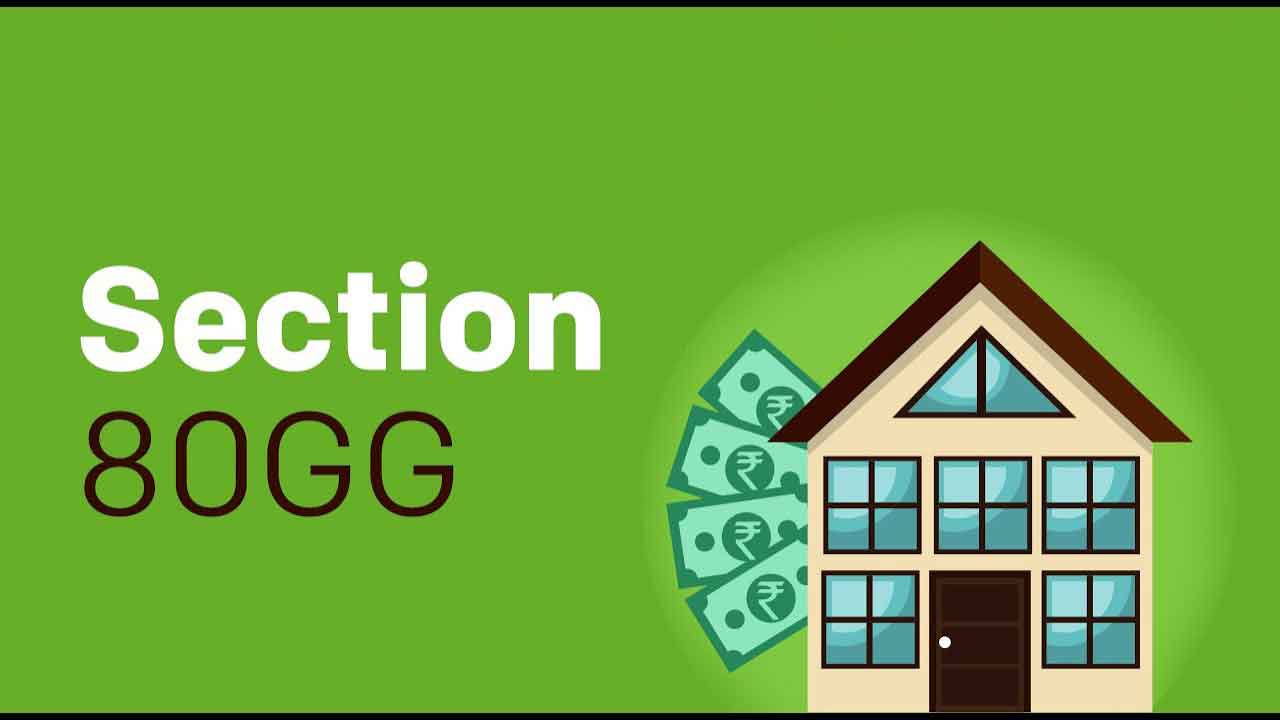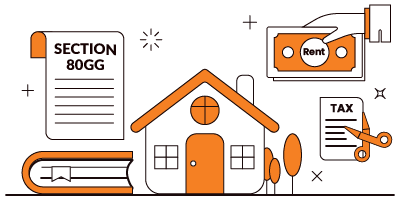В В В Introduction
Income tax exemptions are essential for reducing the financial burden on taxpayers. One such provision under the Indian Income Tax Act is Section 80GG, which allows individuals to claim a deduction for house rent paid. This section benefits those who do not receive House Rent Allowance (HRA) from their employer. In this article, we will explore the eligibility, benefits, usage, limitations, application process, and frequently asked questions regarding Section 80GG.
Definition of Section 80GG
Section 80GG is a provision under the Income Tax Act, 1961, that provides deductions to individuals who pay rent for their accommodation but do not receive HRA from their employer. This deduction is subject to certain conditions and limitations.
User Intent Behind Claiming Section 80GG
Individuals who wish to claim a tax deduction on rent expenses under Section 80GG typically fall into the following categories:
- Self-employed individuals
- Salaried employees without HRA
- People living in rented houses while not owning a residential property in the same location
Benefits of Section 80GG
- Tax Savings – Reduces taxable income, leading to lower tax liability.
- Financial Relief – Helps those without HRA manage rental expenses.
- Encourages Compliance – Encourages individuals to file their taxes properly.
- Applicable to Both Salaried and Self-Employed – Individuals can benefit regardless of employment type.
Usage of Section 80GG
Individuals can use Section 80GG under the following conditions:
- If they are living in a rented property and paying rent.
- If they do not receive HRA as part of their salary.
- If they do not own residential property in the city where they reside.
- If they file Form 10BA confirming non-receipt of HRA.
Limitations of Section 80GG
- Maximum Deduction – The lowest of the following is allowed as deduction:
- Rs. 5,000 per month (Rs. 60,000 annually)
- 25% of Adjusted Total Income
- Actual rent paid minus 10% of total income
- No Own Property – The taxpayer must not own a residential house in the same city where they work or live.
- Form 10BA Submission – Taxpayers need to file Form 10BA for eligibility.
- Not for HRA Recipients – If an employee receives HRA, they cannot claim this deduction.
Application Process for Section 80GG
To apply for Section 80GG, follow these steps:
- Check Eligibility – Ensure you meet the criteria of being self-employed or a salaried employee without HRA.
- Calculate the Deduction – Determine the lowest deduction among the three limits.
- Fill Form 10BA – Declare details like rent paid, landlord’s name, and property address.
- Keep Rent Receipts & Proofs – Maintain rent agreements and payment proofs.
- File Income Tax Return (ITR) – Claim deduction under Section 80GG while filing your ITR.
Cooperative Table for Section 80GG Deductions
| Criteria | Requirement |
|---|---|
| Applicability | Self-employed/Salaried (without HRA) |
| Maximum Deduction | Rs. 60,000 per year |
| Percentage of Total Income | 25% of Adjusted Total Income |
| Deduction Formula | Rent paid – 10% of Total Income |
| Property Ownership | Should not own a house in the residing city |
| Form Submission | Form 10BA |
| Documents Required | Rent receipts, rental agreement, ID proof |
| Claim Process | File deduction in ITR |
| Employer HRA Status | Should not be receiving HRA |
| Proof of Payment | Bank transaction proof, rent receipts |
Conclusion
Section 80GG is a beneficial provision for individuals who do not receive House Rent Allowance (HRA) but pay rent for accommodation. By understanding the eligibility criteria, limitations, and the application process, taxpayers can effectively claim this deduction and reduce their tax liability. Proper documentation, accurate calculation, and compliance with the rules ensure a smooth claim process.
10 Frequently Asked Questions (FAQs) on Section 80GG
1. Who is eligible to claim Section 80GG?
Anyone who does not receive HRA from their employer and pays rent for accommodation can claim this deduction.
2. What is the maximum deduction available under Section 80GG?
The maximum deduction allowed is Rs. 5,000 per month or Rs. 60,000 annually.
3. Can a self-employed person claim Section 80GG?
Yes, self-employed individuals can claim this deduction by filing Form 10BA.
4. Do I need to submit Form 10BA every year?
Yes, Form 10BA must be filed every financial year to claim Section 80GG deductions.
5. Can I claim this deduction if I own a house in another city?
Yes, provided you do not own a house in the city where you currently reside.
6. Can I claim Section 80GG if I receive HRA?
No, this deduction is specifically for those who do not receive HRA from their employer.
7. What documents are required to claim Section 80GG?
You need rent receipts, rental agreement, Form 10BA, and proof of payment (bank statements, transaction records, etc.).
8. Is there a penalty for incorrect claims under Section 80GG?
Yes, incorrect claims may lead to penalties, scrutiny, or rejection by the Income Tax Department.
9. How do I calculate the deduction under Section 80GG?
The deduction is the lowest of:
- Rs. 5,000 per month
- 25% of Adjusted Total Income
- Actual rent paid minus 10% of total income
10. How do I claim this deduction while filing ITR?
While filing your Income Tax Return (ITR), claim Section 80GG under the “Deductions” section and attach the necessary documentation.
By understanding the nuances of Section 80GG, taxpayers can optimize their tax savings while complying with the necessary legal procedures. Proper documentation and adherence to rules are key to ensuring a hassle-free claim process.
For further details access our website https://vibrantfinserv.com
To visit https://www.gst.gov.in/
Contact:В В В В 8130555124, 8130045124
Whatsapp:В В https://wa.me/918130555124
Mail ID:В В В В В В operations@vibrantfinserv.com
Web Link:В В В https://vibrantfinserv.com
FB Link:В В В В В В https://fb.me/vibrantfinserv
Insta Link:В В https://www.instagram.com/vibrantfinserv2/


